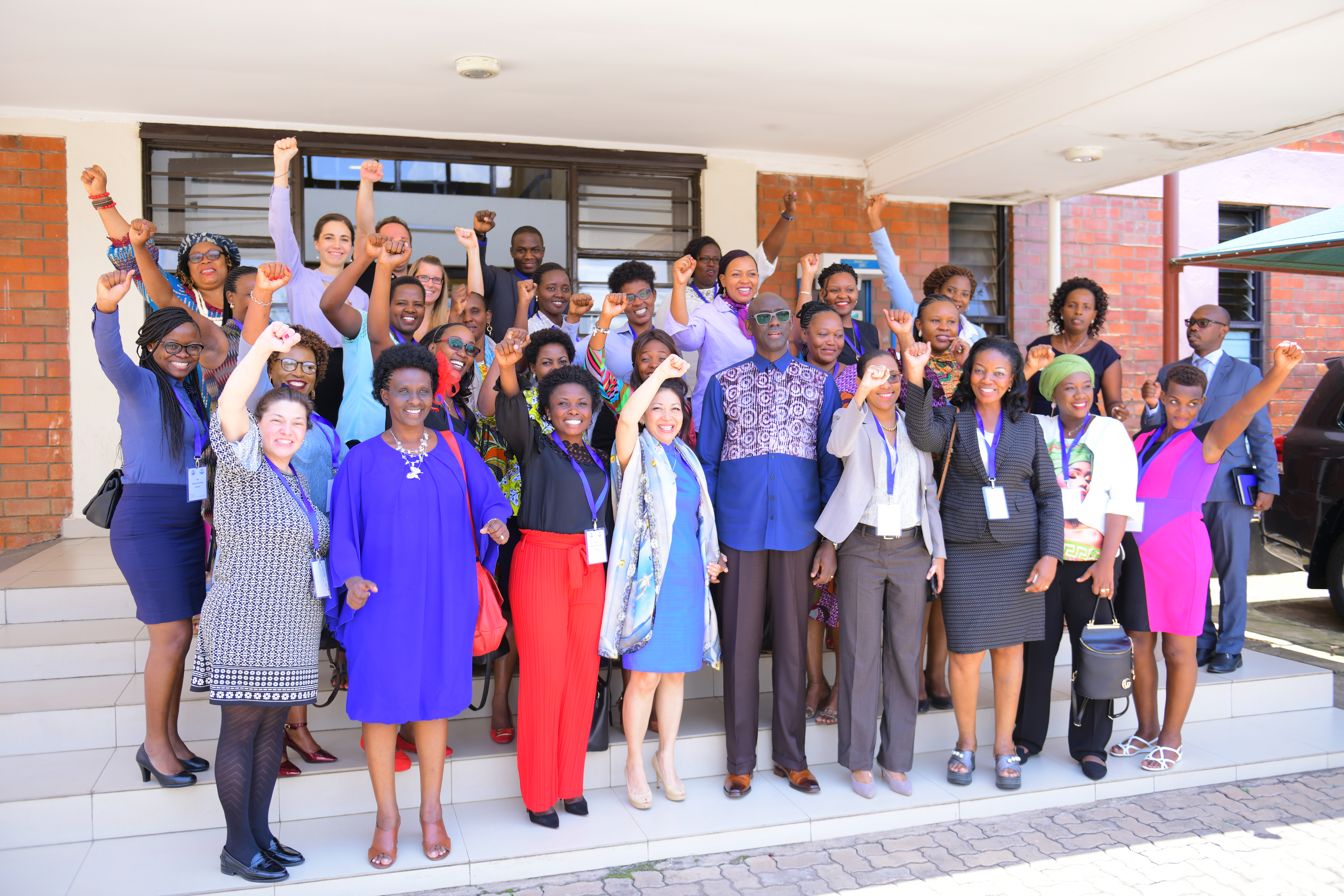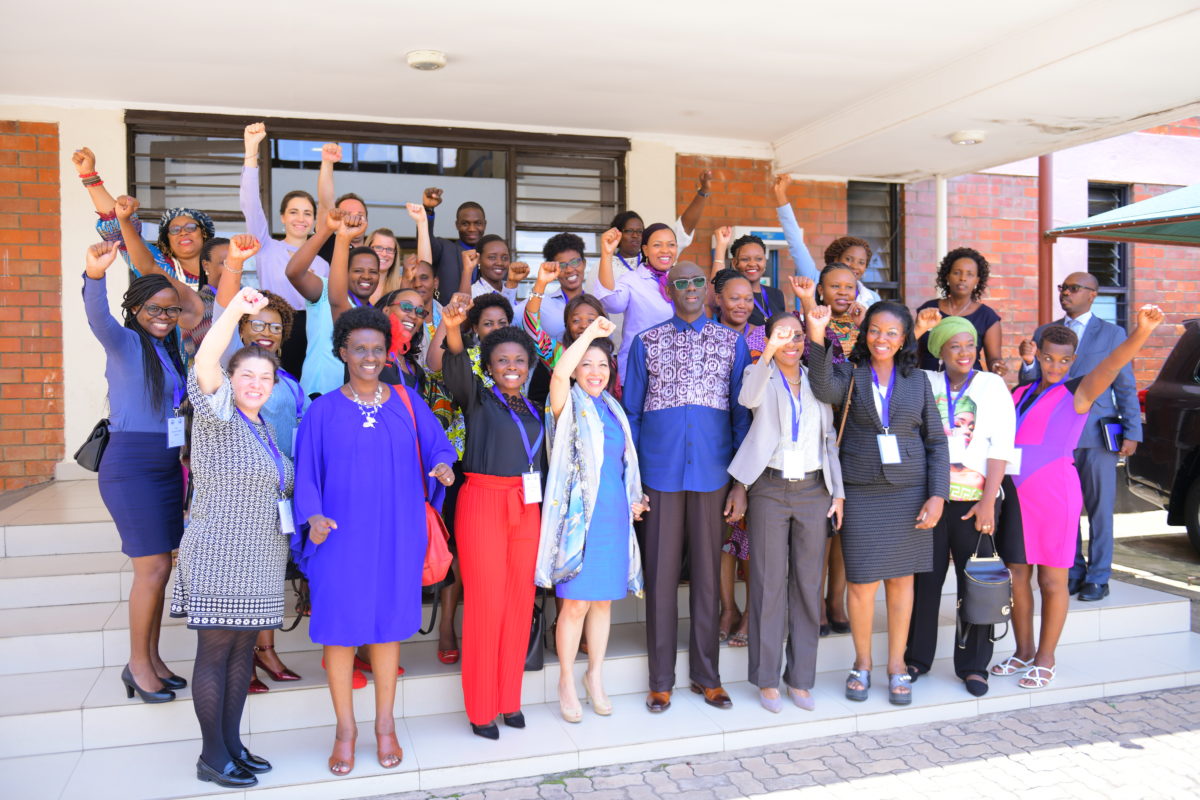
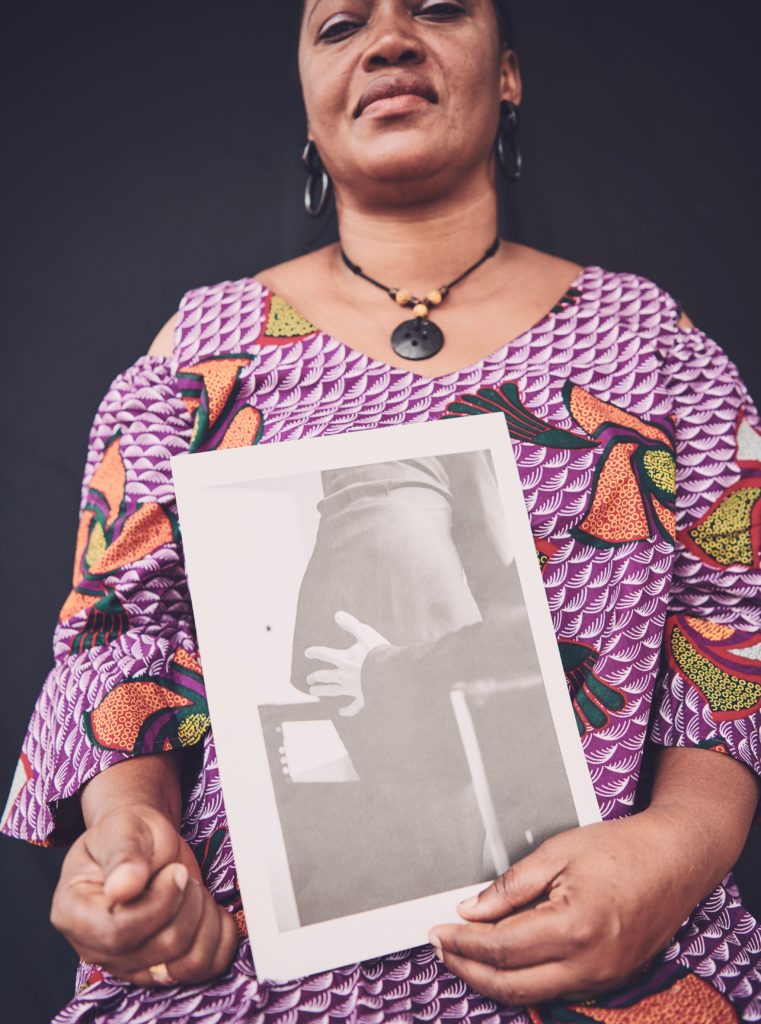
“Today I brought with me this image….it’s a women with a man’s hand on her bottom. For me it represents harassment. It’s an image I’ve kept with me since 2007, and it reminds me of the importance of my work defending other women’.
Gisèle Kapinga (right), a lawyer from DR Congo, was one of 27 women defense lawyers from across Francophone Africa who gathered in Kigali, Rwanda, for a first-of-its-kind event strengthening women’s leadership in the legal profession and identifying strategies for breaking down barriers that prevent women from joining defenders’ ranks.
As Gisèle told her story, the other women in the room– all of them defense lawyers – nodded their heads. For many of them, discrimination has been an unfortunate part of their professional lives, and many shared similar stories of discrimination both directed at them or at their female clients.
Around the world, women remain underrepresented in justice system roles, including defenders. A 2011 report issued by the UN Secretary General noted that this under representation “undoubtedly reflects institutionalized gender discrimination within the justice system.” In Rwanda, women comprise just 22 percent of the Rwanda Bar Association.
The Kigali gathering – the first ever of women defenders from across the countries of Francophone Africa – was intended to lay the groundwork for permanently changing this reality. Hosted by International Bridges to Justice, a Geneva-based organization that works to protect the due process rights of accused individuals by providing them with early access to a competent, effective lawyer, the event provided the lawyers with training in leadership, communications, and criminal defense skills.
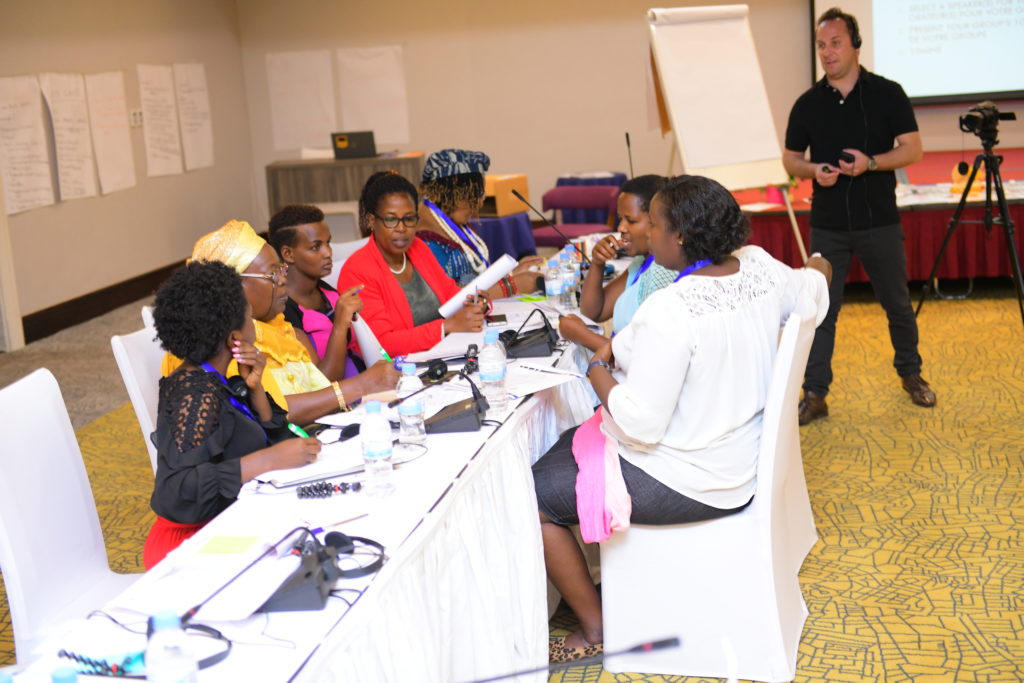
“Women should have the same chances as men to succeed in careers as defenders,” says Karen Tse, IBJ’s founder and CEO. “But this goes beyond just boosting women’s careers – it goes right to the heart of building durable, high-quality justice systems that provide equal justice for all people. We can’t expect to do that if we limit professional opportunities for half of the population.”
The training initiative was supported by the Minister of Justice of Rwanda, Johnston Busingye, who on the second day of training invited the group to meet with him at the Ministry of Justice. The Minister spoke to the women on the importance of their work as criminal defense lawyers and of the importance of gender equality within justice systems.
Ensuring gender equality and empowering women and girls is also recognized as a core part of countries’ sustainable development. Gender equality is the fifth Sustainable Development Goal in the UN’s 2030 Strategy for Sustainable Development.
IBJ Legal Training Director, Jacques du Preez, led a number of modules designed to not only deepen the participant’s knowledge of international human rights norms, standards, and best practices, but also to develop their trial advocacy and criminal defense techniques. Simultaneously, IBJ’s CEO, Karen Tse, led a a session designed to explore past, current, and future trends within the justice systems of the participant’s respective countries, and facilitated a discussion on how individual defenders can catalyze change.
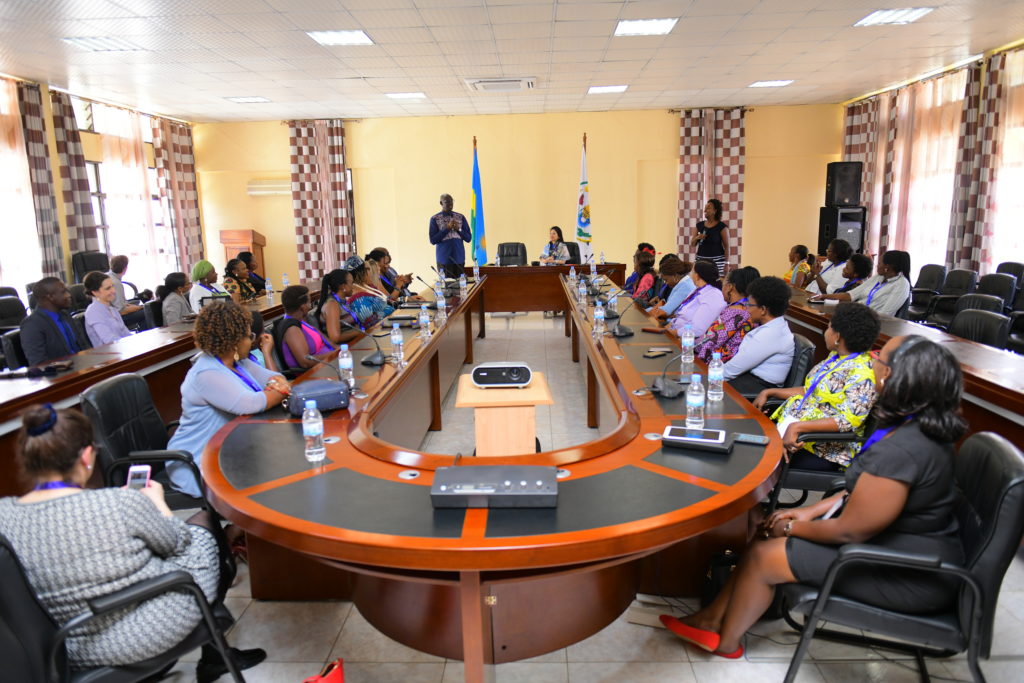
In addition to skills training, the training provided attendees with an opportunity to network, build stronger connections, and share stories about challenges they faced and how they overcame them. Perhaps most importantly, the event gave the women a chance to talk about strategies for transforming the profession and achieving real gender balance over time. International trainer Maryam Montague held a number of sessions designed to build the confidence of the women through teaching effective public speaking skills, including the importance of body language and tips on effective voice projection.
The training session was funded by Global Affairs Canada and was attended by criminal defense lawyers from Burkina Faso, Burundi, Cameroon, Democratic Republic of the Congo, Gabon, Ivory Coast, Mali, Rwanda, Senegal, and Togo.
